Immune-Related Adverse Events
Immunotherapy enhances a cancer patient’s immune system to fight an array of cancers. Immune checkpoint blockade can, however, induce inflammatory side effects known as immune-related Adverse Events (irAEs). Because these rare but serious complications need to be quickly detected and properly treated, The Oncologist® is devoted to publishing the latest insights on immunotherapy and irAEs to enhance the care of patients. Please find our most recent articles on these topics below.
Identifying predictors of overall survival among patients with TMB-low metastatic cancer treated with immune checkpoint inhibitors
Camila Braganca Xavier and others
The Oncologist, Volume 30, Issue 4, April 2025, oyaf078, https://doi.org/10.1093/oncolo/oyaf078
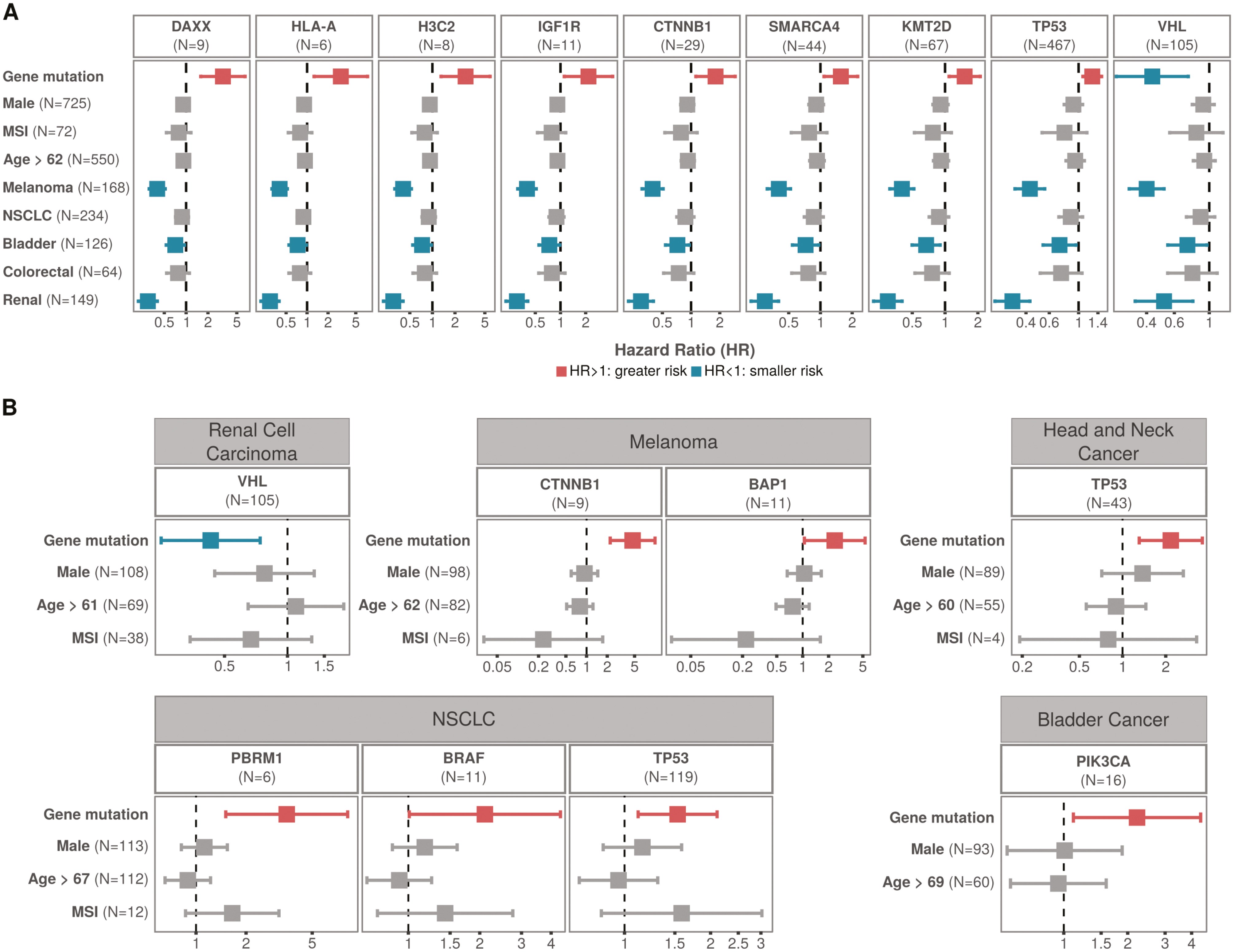 Background Immune checkpoint inhibitors (ICIs) have significantly advanced cancer therapy, yet their efficacy in tumors with low tumor mutational burden (TMB) remains suboptimal. In this study, we aimed to elucidate the impact of somatic mutations on overall survival (OS) in TMB-low patients ...
Background Immune checkpoint inhibitors (ICIs) have significantly advanced cancer therapy, yet their efficacy in tumors with low tumor mutational burden (TMB) remains suboptimal. In this study, we aimed to elucidate the impact of somatic mutations on overall survival (OS) in TMB-low patients ...
A phase II trial of sitravatinib + nivolumab after progression on immune checkpoint inhibitor in patients with metastatic clear cell RCC
Andrew W Hahn and others
The Oncologist, Volume 30, Issue 4, April 2025, oyaf053, https://doi.org/10.1093/oncolo/oyaf053
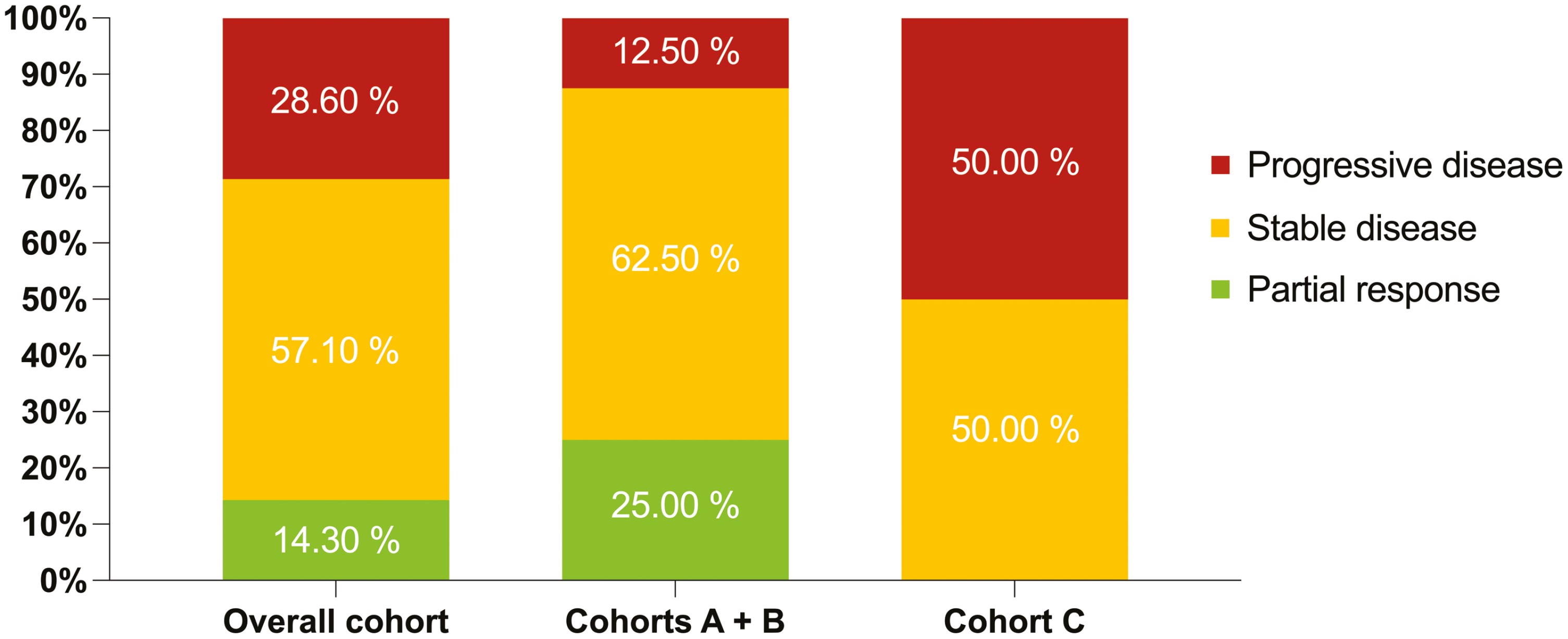 Background Sitravatinib, an oral multi-kinase inhibitor targeting VEGFR, TAM, and MET, has been shown to resensitize the tumor microenvironment to immune checkpoint inhibitors (ICI) by reducing immune-suppressive myeloid cells in metastatic clear cell RCC (ccRCC). ICI is the standard first-line ...
Background Sitravatinib, an oral multi-kinase inhibitor targeting VEGFR, TAM, and MET, has been shown to resensitize the tumor microenvironment to immune checkpoint inhibitors (ICI) by reducing immune-suppressive myeloid cells in metastatic clear cell RCC (ccRCC). ICI is the standard first-line ...
Clinical and pathological outcomes of deferred nephrectomy in patients with metastatic and locally advanced RCC after immune checkpoint inhibitors
Paulo S do Amaral and others
The Oncologist, Volume 30, Issue 4, April 2025, oyaf004, https://doi.org/10.1093/oncolo/oyaf004
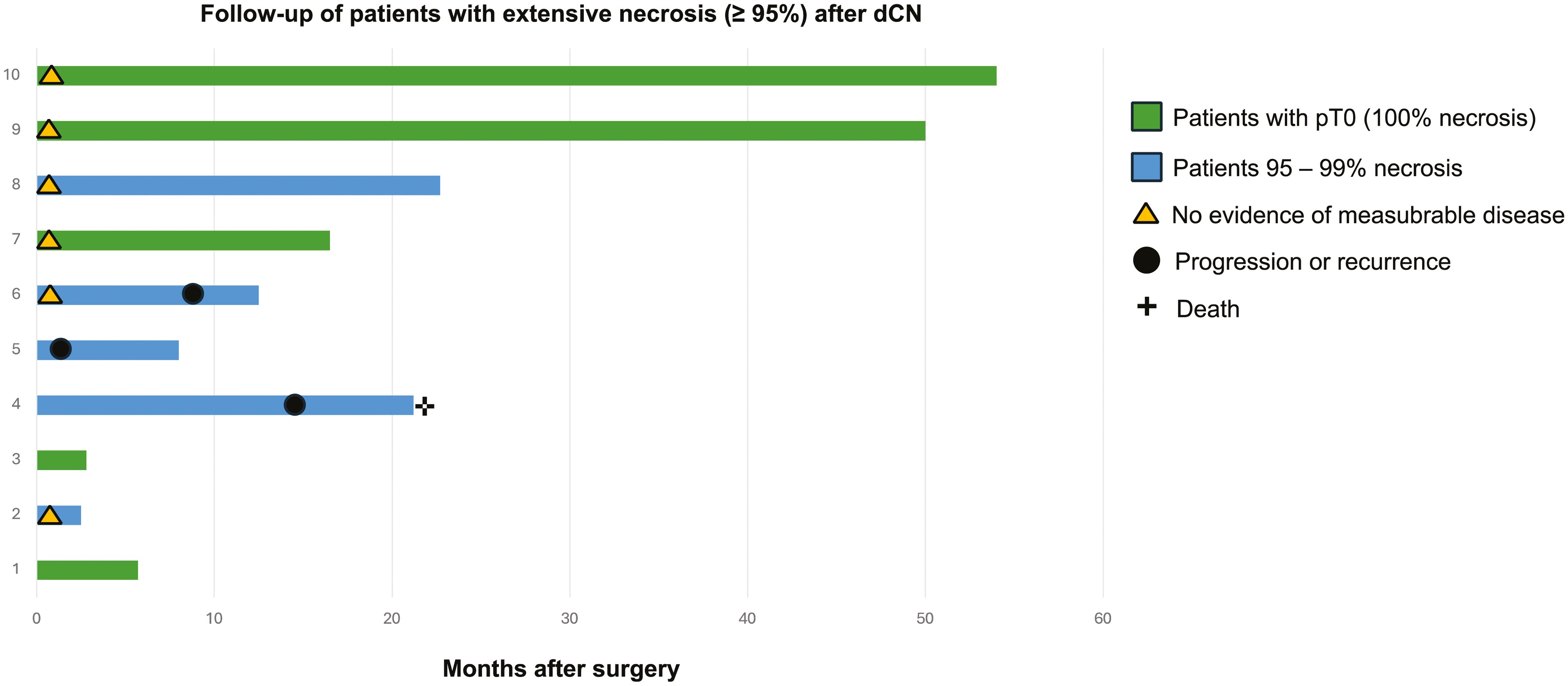 Background and objective Cytoreductive nephrectomy following immune checkpoint blockade (ICB) in metastatic renal cell carcinoma remains controversial, with limited data on its clinical and pathological outcomes. This study evaluated the outcomes of patients undergoing deferred cytoreductive ...
Background and objective Cytoreductive nephrectomy following immune checkpoint blockade (ICB) in metastatic renal cell carcinoma remains controversial, with limited data on its clinical and pathological outcomes. This study evaluated the outcomes of patients undergoing deferred cytoreductive ...
Clinical outcomes of recurrent or metastatic head and neck cancer after failure of platinum and nivolumab: a multicenter retrospective study
Takane Watanabe and others
The Oncologist, Volume 30, Issue 3, March 2025, oyaf018, https://doi.org/10.1093/oncolo/oyaf018
 Background Platinum and anti-PD-1 antibodies are the front-line systemic therapy for recurrent or metastatic head and neck squamous cell carcinoma (RM-HNSCC). However, limited data are available on clinical outcomes and appropriate regimens for patients with RM-HNSCC following treatment failure ...
Background Platinum and anti-PD-1 antibodies are the front-line systemic therapy for recurrent or metastatic head and neck squamous cell carcinoma (RM-HNSCC). However, limited data are available on clinical outcomes and appropriate regimens for patients with RM-HNSCC following treatment failure ...
Tri-Ad5 vaccine plus bintrafusp alfa for newly diagnosed, advanced-stage head and neck cancer not associated with human papillomavirus infection
Jason M Redman and others
The Oncologist, Volume 30, Issue 3, March 2025, oyaf006, https://doi.org/10.1093/oncolo/oyaf006
 Background Newly diagnosed, advanced-stage head and neck cancer (HNSCC) not associated with human papillomavirus (HPV) infection has poor survival and functional outcomes despite surgical management. Neoadjuvant immunotherapy is of interest to improve long-term outcomes. Methods Individuals with ...
Background Newly diagnosed, advanced-stage head and neck cancer (HNSCC) not associated with human papillomavirus (HPV) infection has poor survival and functional outcomes despite surgical management. Neoadjuvant immunotherapy is of interest to improve long-term outcomes. Methods Individuals with ...
A phase I/II trial of avelumab combinations with ivuxolimab, utomilumab, and radiation therapy in patients with advanced gastrointestinal malignancies
Jibran Ahmed and others
The Oncologist, Volume 30, Issue 3, March 2025, oyaf032, https://doi.org/10.1093/oncolo/oyaf032
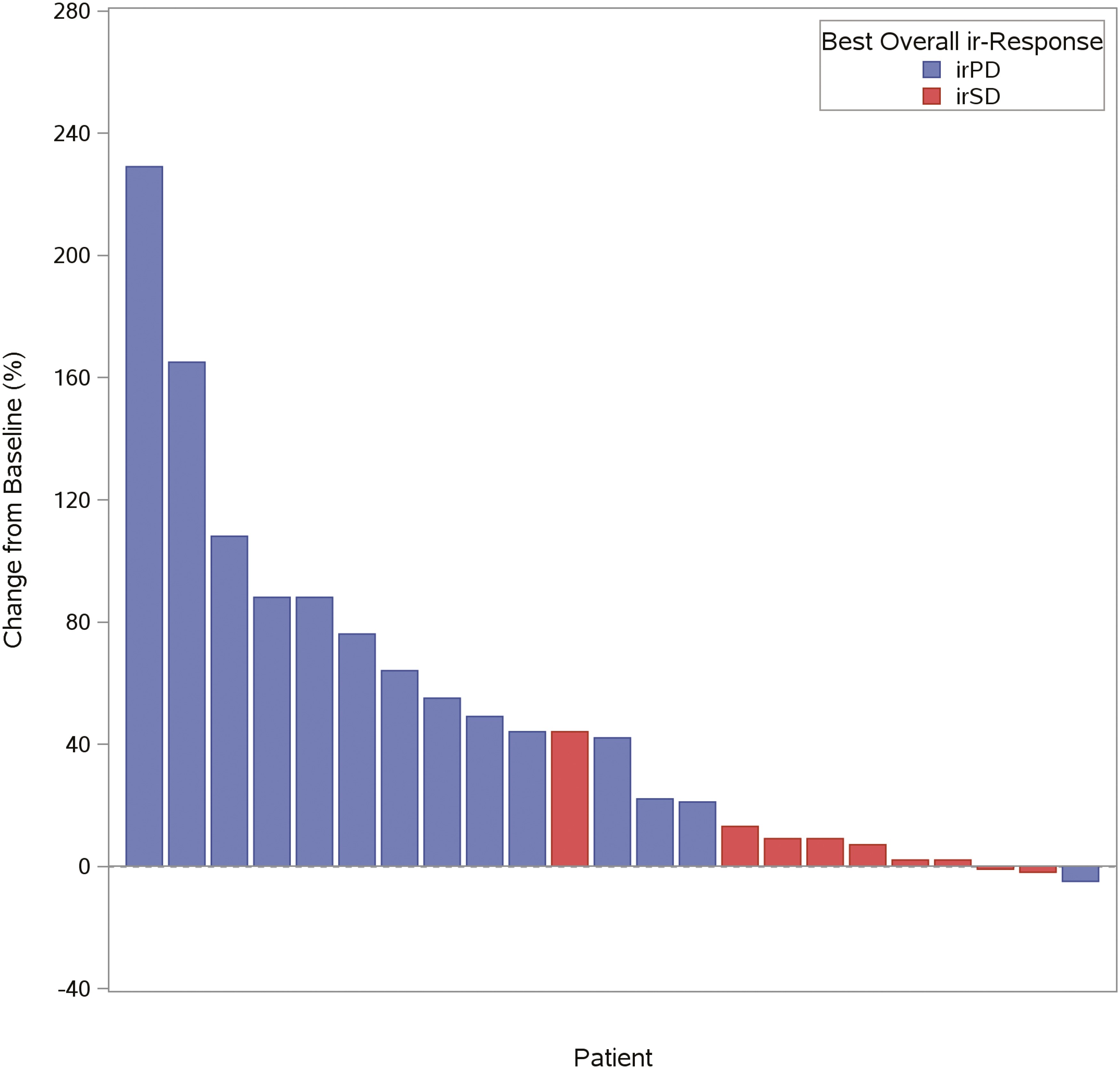 Background Checkpoint agonists utomilumab (4-1BB agonist) and ivuxolimab (OX40 agonist) enhance T effector cell function. Preclinical studies suggest that combining these drugs with avelumab (anti-PD-L1 antibody) can potentially synergize this effect. In addition, tissue abscopal effects of ...
Background Checkpoint agonists utomilumab (4-1BB agonist) and ivuxolimab (OX40 agonist) enhance T effector cell function. Preclinical studies suggest that combining these drugs with avelumab (anti-PD-L1 antibody) can potentially synergize this effect. In addition, tissue abscopal effects of ...
Efficacy of atezolizumab combined with platinum and etoposide in the treatment of extrapulmonary neuroendocrine carcinoma
I-Wei Ho and others
The Oncologist, Volume 30, Issue 3, March 2025, oyae372, https://doi.org/10.1093/oncolo/oyae372
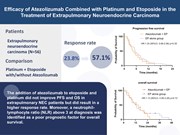 Background Neuroendocrine carcinoma (NEC) is an aggressive, poorly differentiated Grade 3 (G3) tumor with high nuclear and cellular atypia and Ki-67 indices over 20%. While most cases are lung NECs, extrapulmonary NECs are rarer and less studied. Standard treatment involves etoposide and platinum ...
Background Neuroendocrine carcinoma (NEC) is an aggressive, poorly differentiated Grade 3 (G3) tumor with high nuclear and cellular atypia and Ki-67 indices over 20%. While most cases are lung NECs, extrapulmonary NECs are rarer and less studied. Standard treatment involves etoposide and platinum ...
Response to pembrolizumab in advanced prostate cancer with predictive biomarkers
Nicole J Altomare and others
The Oncologist, Volume 30, Issue 3, March 2025, oyaf025, https://doi.org/10.1093/oncolo/oyaf025
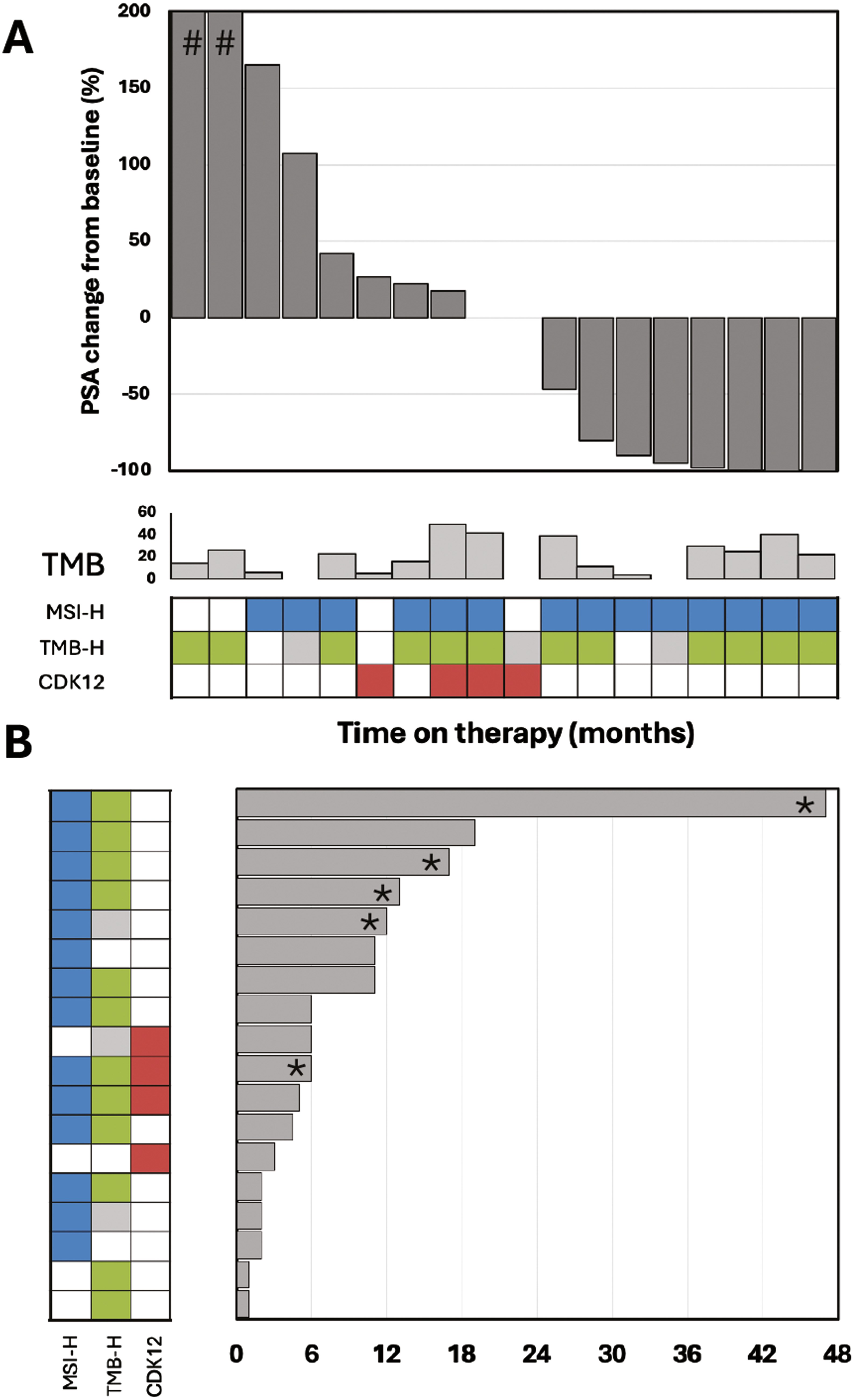 Checkpoint inhibitors targeting PD-1/PD-L1, such as pembrolizumab, can be effective in a small population of biomarker-selected patients with metastatic prostate cancer (mPC), as has been demonstrated by small case series. The objective of this study is to help identify which biomarker-selected ...
Checkpoint inhibitors targeting PD-1/PD-L1, such as pembrolizumab, can be effective in a small population of biomarker-selected patients with metastatic prostate cancer (mPC), as has been demonstrated by small case series. The objective of this study is to help identify which biomarker-selected ...
Treatment with programmed-death-1 inhibitors for non-melanoma skin cancer among immunocompromised patients with subgroup analysis of solid organ transplant patients
Eyal Yosefof and others
The Oncologist, Volume 30, Issue 2, February 2025, oyaf022, https://doi.org/10.1093/oncolo/oyaf022
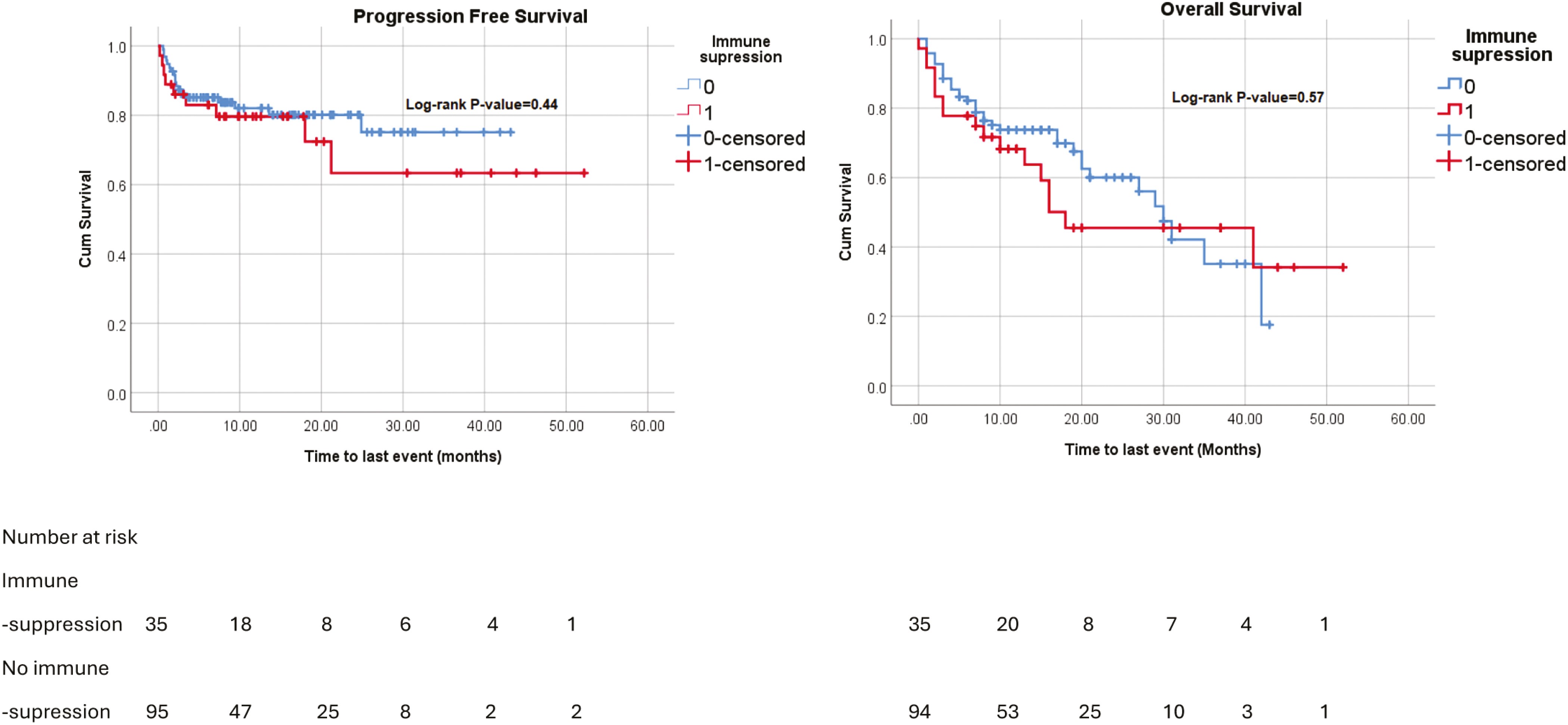 Background Programmed-cell death protein 1 (PD-1) inhibitors have emerged as a standard of care treatment among advanced-stage or metastatic cutaneous squamous cell carcinoma (cSCC). Immune-compromised patients and particularly solid organ transplant recipients (SOTRs) are considered at high risk ...
Background Programmed-cell death protein 1 (PD-1) inhibitors have emerged as a standard of care treatment among advanced-stage or metastatic cutaneous squamous cell carcinoma (cSCC). Immune-compromised patients and particularly solid organ transplant recipients (SOTRs) are considered at high risk ...
Prophylactic antibiotic use is associated with better clinical outcomes in gastric cancer patients receiving immunotherapy
Fangyuan Zhang and others
The Oncologist, Volume 30, Issue 2, February 2025, oyae362, https://doi.org/10.1093/oncolo/oyae362
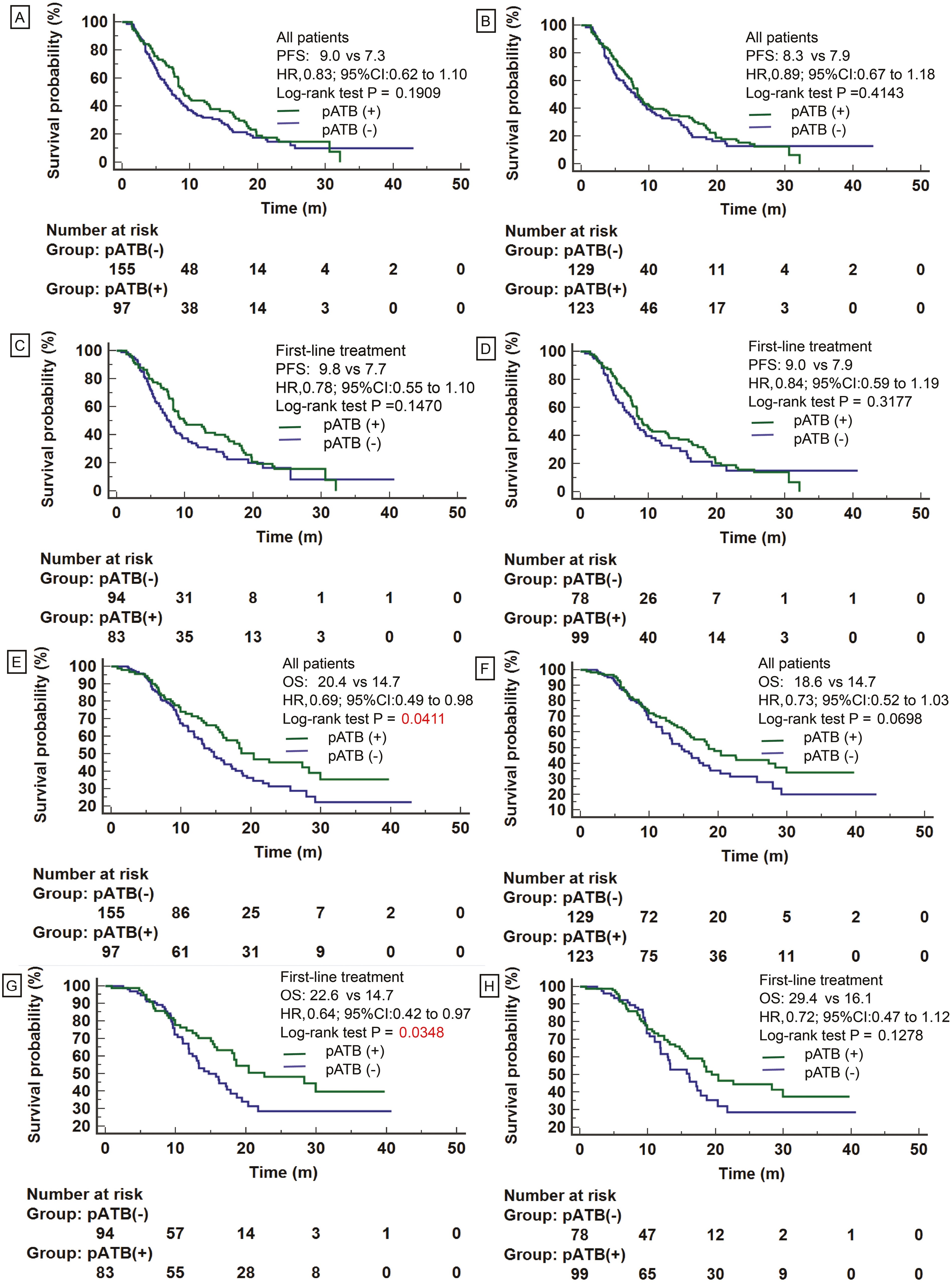 Background The relationship between antibiotic treatment and immunotherapy efficacy is complex. Methods This study was a single-center study. History of antibiotic use in gastric cancer (GC) patients within 1 or 3 months prior to immunotherapy was collected. Patients were categorized into 3 groups ...
Background The relationship between antibiotic treatment and immunotherapy efficacy is complex. Methods This study was a single-center study. History of antibiotic use in gastric cancer (GC) patients within 1 or 3 months prior to immunotherapy was collected. Patients were categorized into 3 groups ...
Reinventing chemotherapy
Bruce A Chabner and others
The Oncologist, Volume 30, Issue 2, February 2025, oyae331, https://doi.org/10.1093/oncolo/oyae331
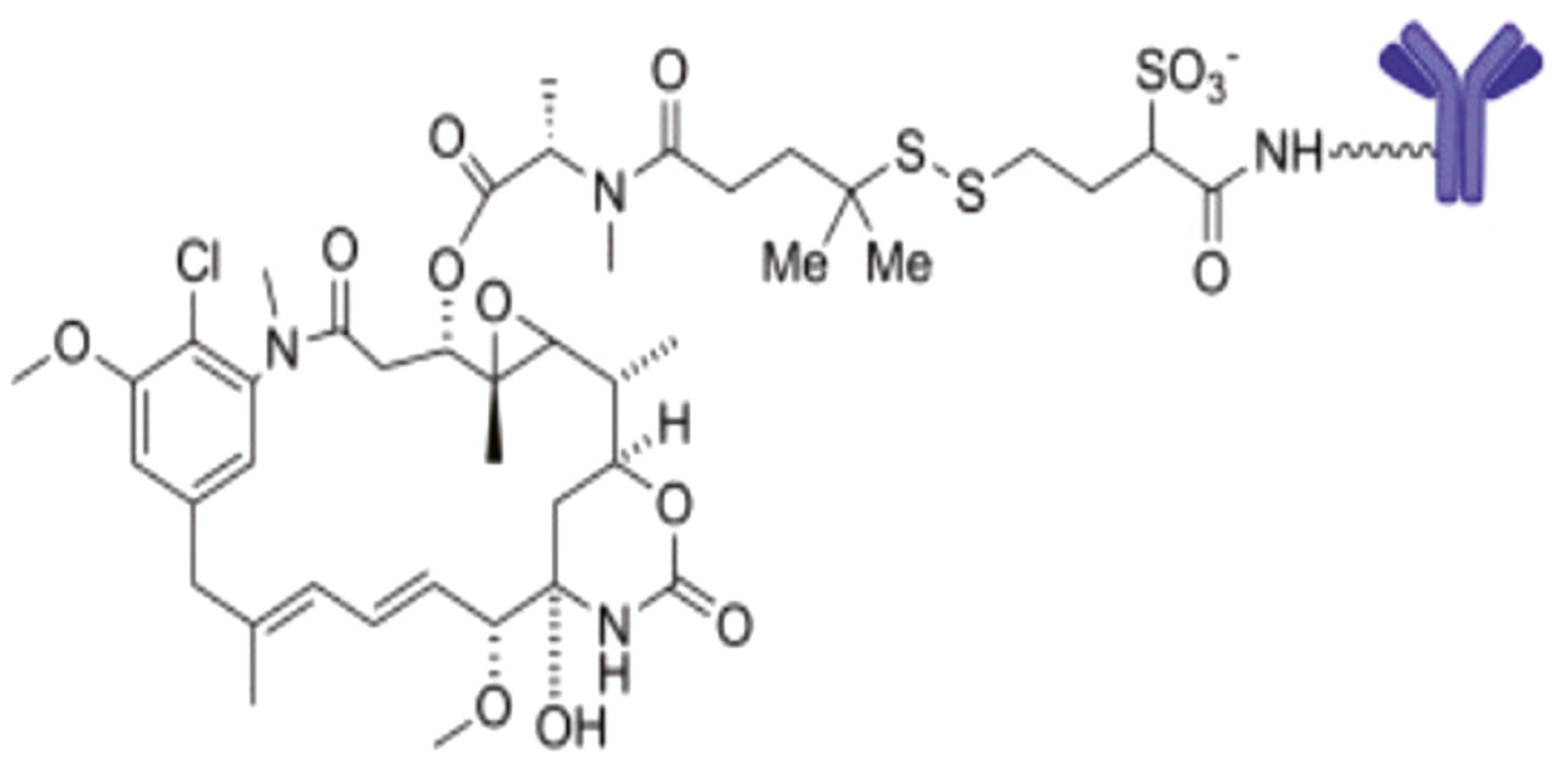 At first glance, the future of chemotherapy as a standard component of cancer treatment is not promising. After 7 decades as the mainstay of adjuvant therapy and therapy for metastatic solid tumors, and providing cures for hematological malignancies, interest in infusional chemotherapy is clearly ...
At first glance, the future of chemotherapy as a standard component of cancer treatment is not promising. After 7 decades as the mainstay of adjuvant therapy and therapy for metastatic solid tumors, and providing cures for hematological malignancies, interest in infusional chemotherapy is clearly ...
Updated overall survival in patients with prior checkpoint inhibitor therapy in the phase III TIVO-3 study
Miguel Zugman and others
The Oncologist, Volume 30, Issue 2, February 2025, oyae369, https://doi.org/10.1093/oncolo/oyae369
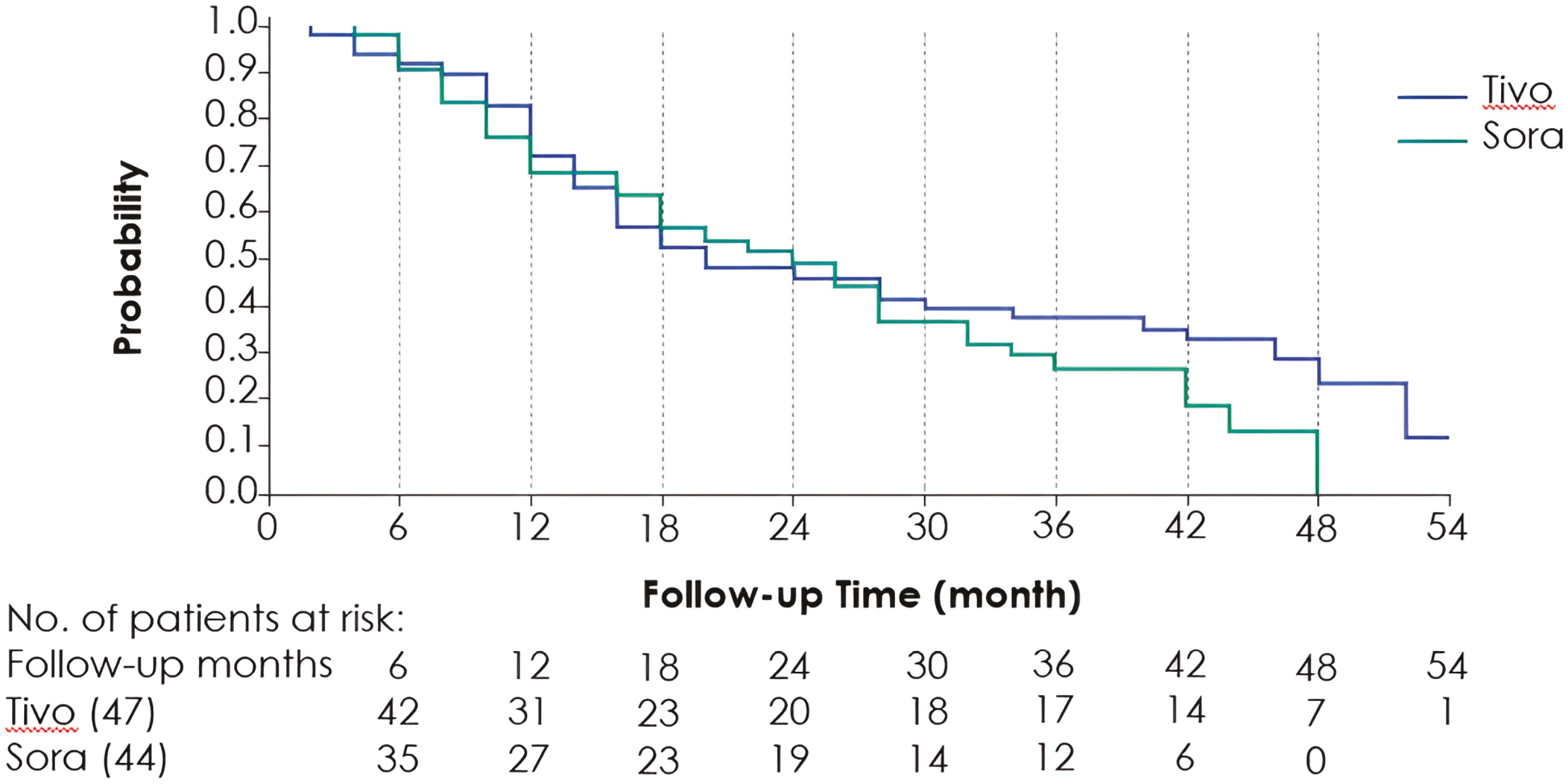 Background The phase III TIVO-3 study demonstrated improvement in progression-free survival (PFS) with tivozanib compared with sorafenib in patients with 2-3 prior systemic regimens for metastatic renal cell carcinoma (mRCC). Methods The TIVO-3 trial enrolled patients with measurable mRCC who had ...
Background The phase III TIVO-3 study demonstrated improvement in progression-free survival (PFS) with tivozanib compared with sorafenib in patients with 2-3 prior systemic regimens for metastatic renal cell carcinoma (mRCC). Methods The TIVO-3 trial enrolled patients with measurable mRCC who had ...
Steroid-refractory immune mediated hepatitis managed with budesonide in patients with metastatic melanoma: proof of concept and literature review
Roma A Kankaria and Douglas B Johnson
The Oncologist, Volume 30, Issue 1, January 2025, oyae361, https://doi.org/10.1093/oncolo/oyae361
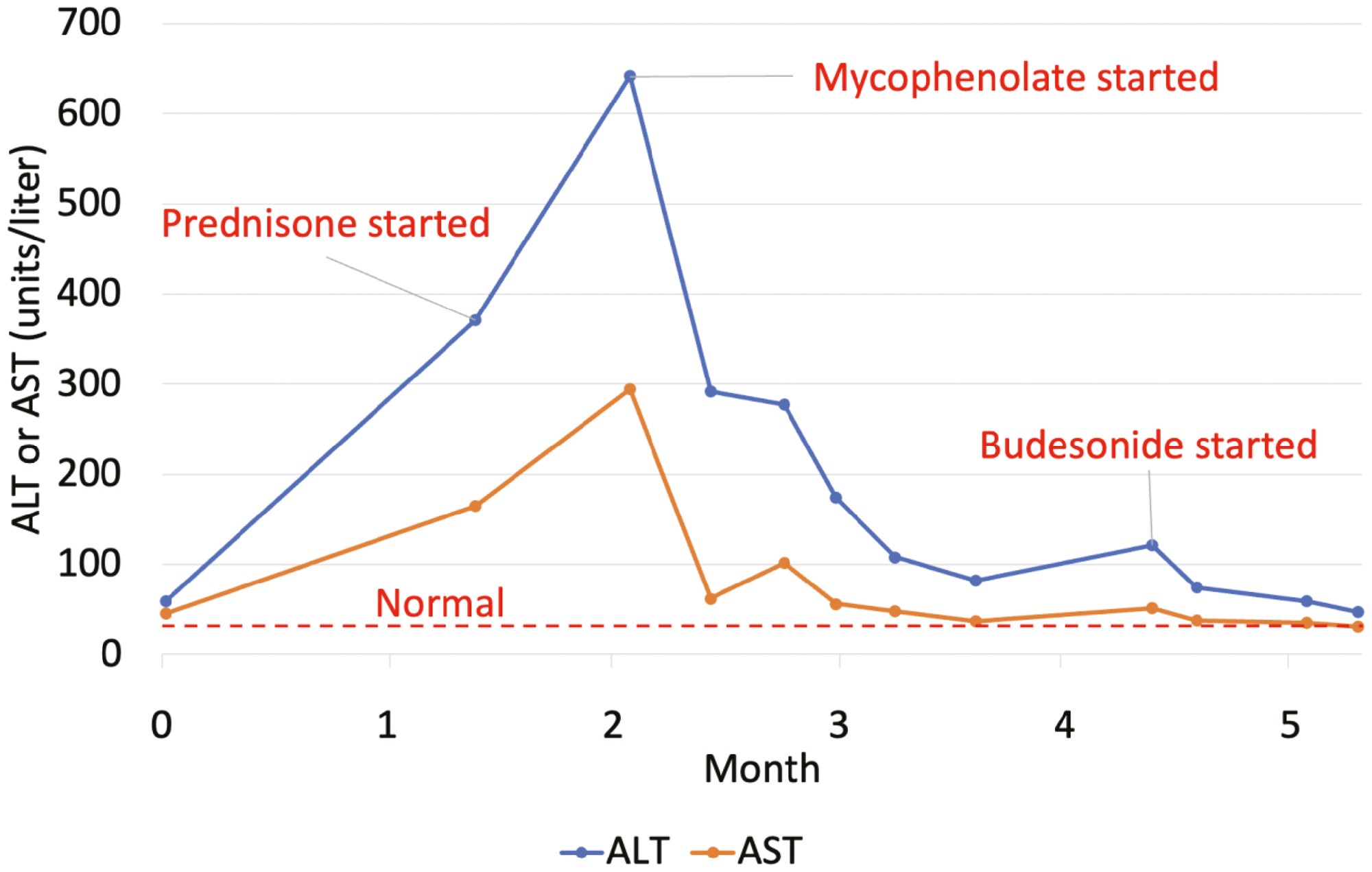 Immune checkpoint inhibitors (ICIs) have advanced the treatment of metastatic melanoma. However, some patients develop ICI-associated toxicities like hepatitis (ie, immune-mediated hepatitis; IMH). Although these toxicities usually resolve with steroids, steroid-refractory events may occur, which ...
Immune checkpoint inhibitors (ICIs) have advanced the treatment of metastatic melanoma. However, some patients develop ICI-associated toxicities like hepatitis (ie, immune-mediated hepatitis; IMH). Although these toxicities usually resolve with steroids, steroid-refractory events may occur, which ...
A first-in-human study of JNJ-70218902, a bispecific T-cell-redirecting antibody against TMEFF2 in metastatic castration-resistant prostate cancer
Emiliano Calvo and others
The Oncologist, Volume 30, Issue 1, January 2025, oyae313, https://doi.org/10.1093/oncolo/oyae313
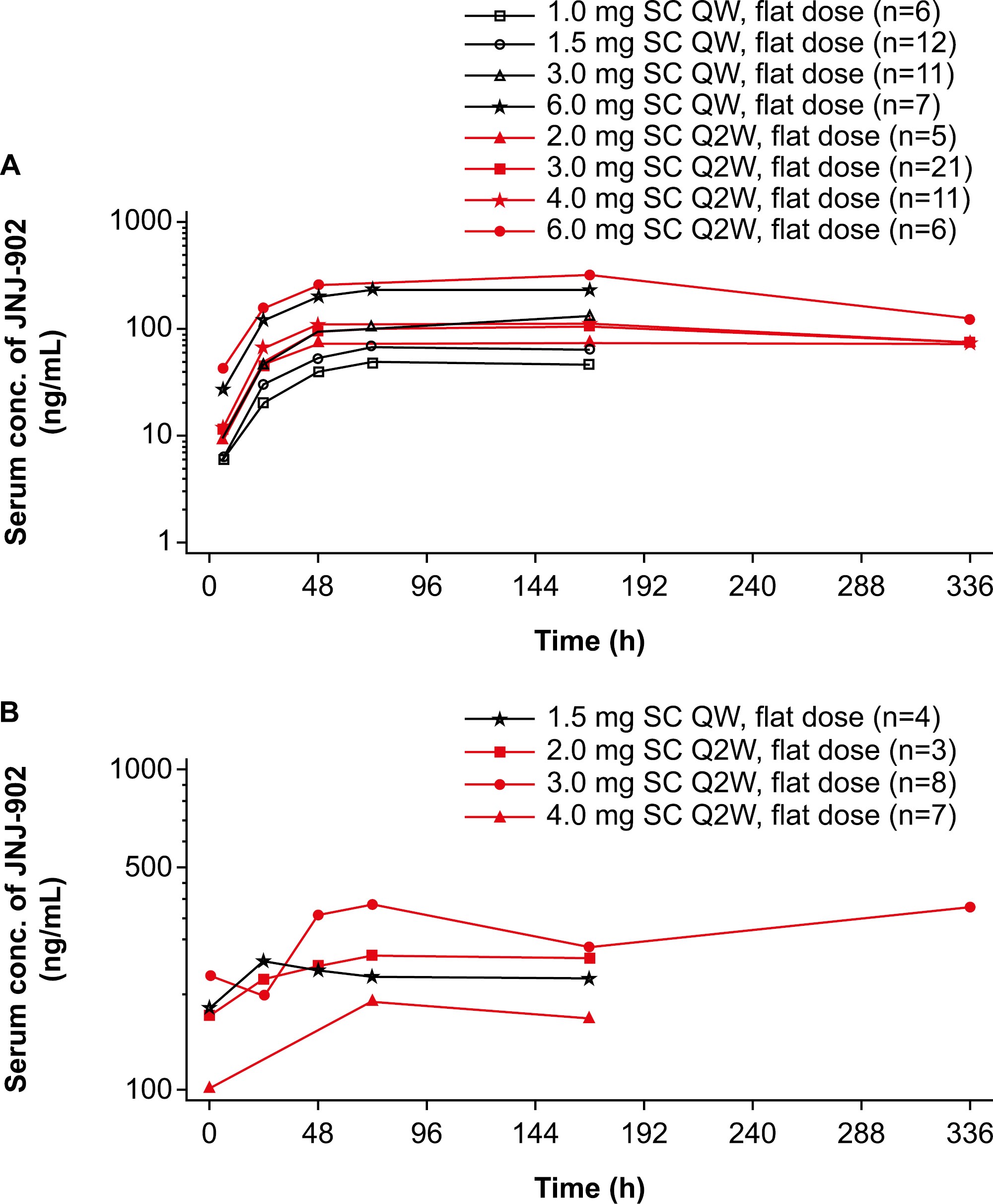 Background Metastatic castration-resistant prostate cancer (mCRPC) has a poor prognosis, necessitating the investigation of novel treatments and targets. This study evaluated JNJ-70218902 (JNJ-902), a T-cell redirector targeting transmembrane protein with epidermal growth factor-like and 2 ...
Background Metastatic castration-resistant prostate cancer (mCRPC) has a poor prognosis, necessitating the investigation of novel treatments and targets. This study evaluated JNJ-70218902 (JNJ-902), a T-cell redirector targeting transmembrane protein with epidermal growth factor-like and 2 ...
Outcomes and molecular profiles in sarcomatoid carcinoma of unknown primary: the Mayo Clinic experience
Harry E Fuentes and others
The Oncologist, oyae333, https://doi.org/10.1093/oncolo/oyae333
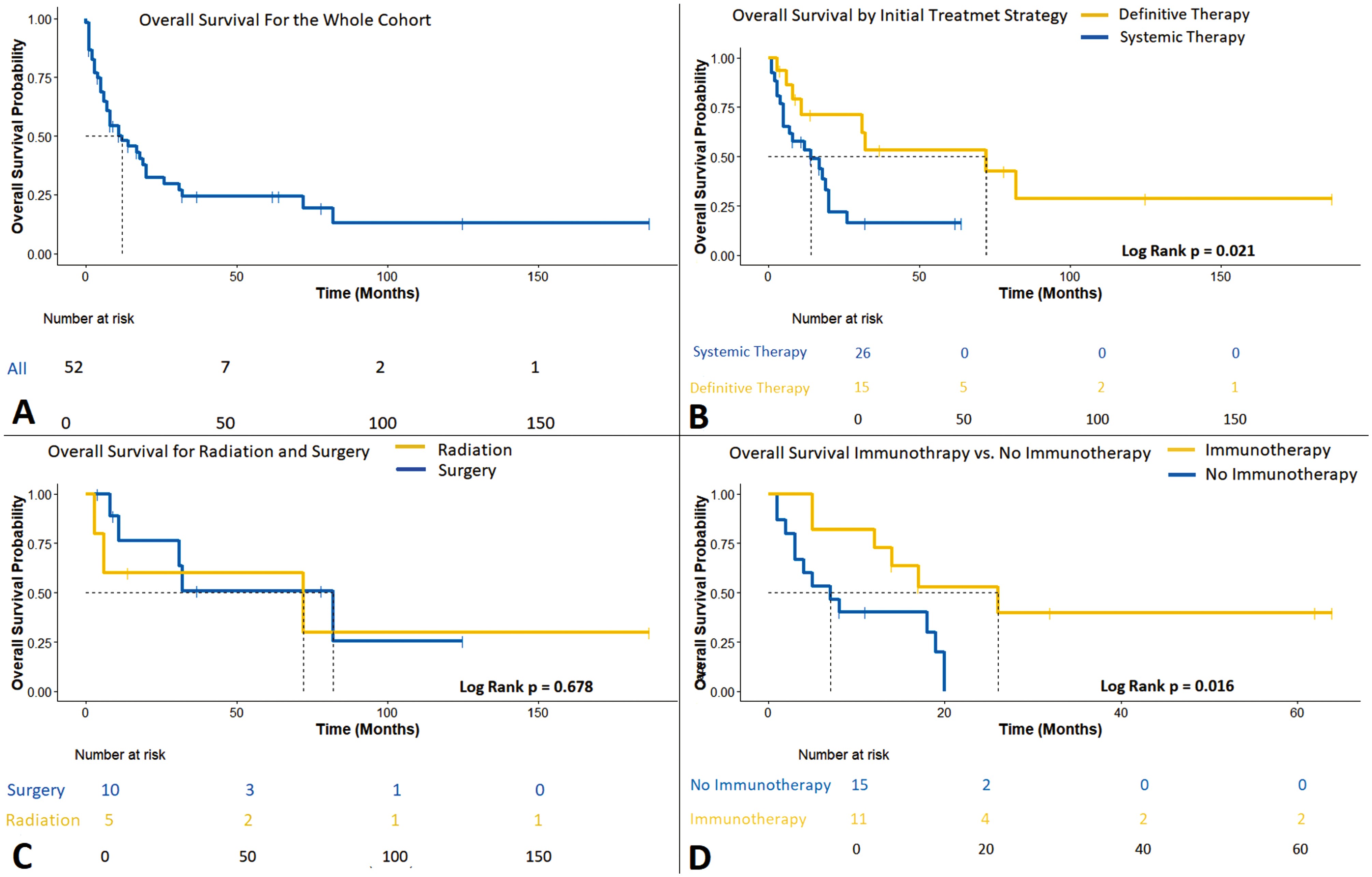 Background Sarcomatoid carcinomas (SC) are rare tumors with both epithelial and mesenchymal characteristics, linked to aggressive behavior and poor prognosis. Sarcomatoid carcinoma of unknown primary (SCUP) is an exceedingly rare subset with limited literature and no standardized management ...
Background Sarcomatoid carcinomas (SC) are rare tumors with both epithelial and mesenchymal characteristics, linked to aggressive behavior and poor prognosis. Sarcomatoid carcinoma of unknown primary (SCUP) is an exceedingly rare subset with limited literature and no standardized management ...
Second-line therapies in advanced hepatocellular carcinoma following first-line atezolizumab and bevacizumab: multicenter single institution cohort experience
Paulina Marell and others
The Oncologist, oyae342, https://doi.org/10.1093/oncolo/oyae342
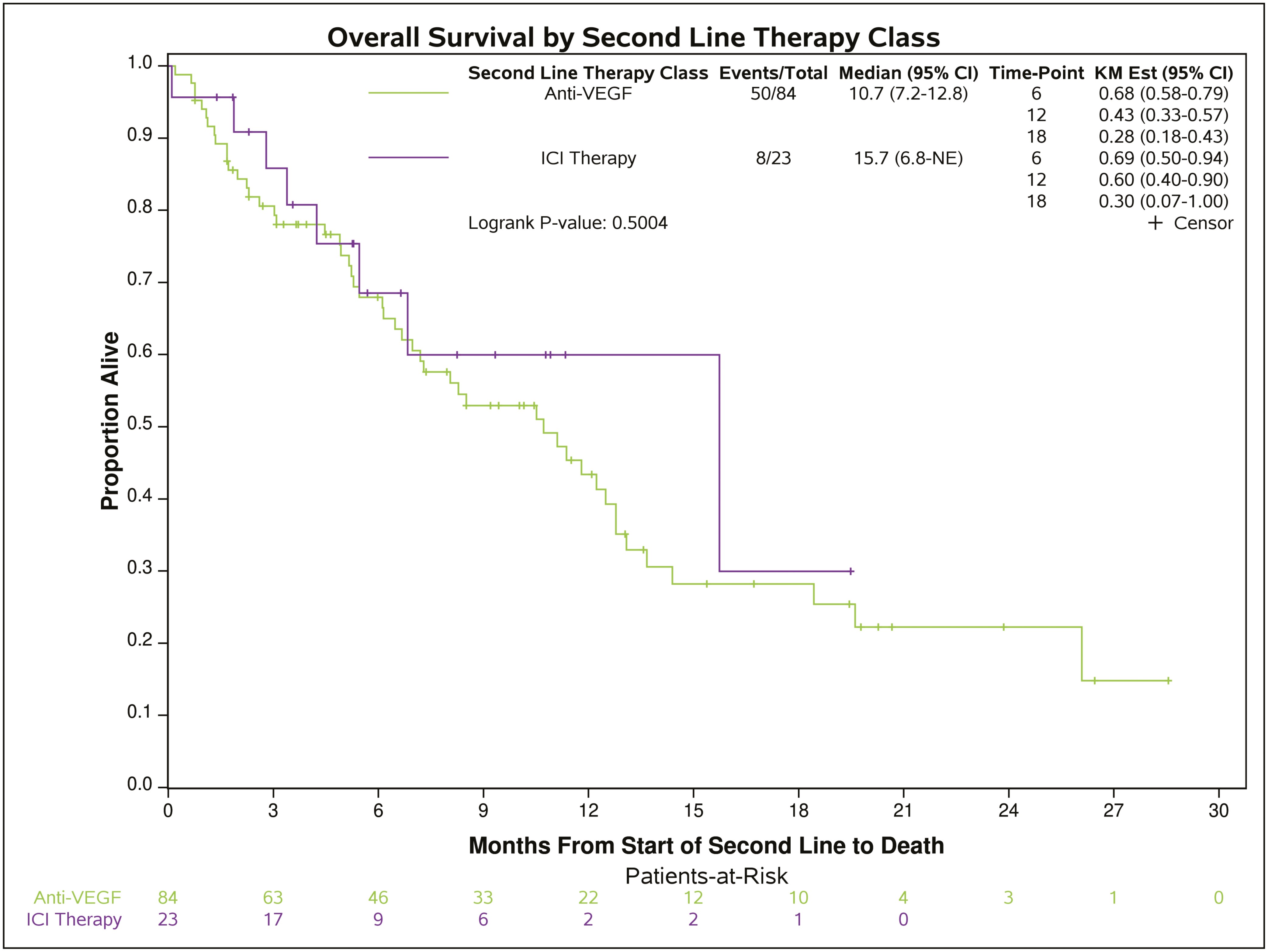 Background Atezolizumab plus bevacizumab (A/B) received FDA approval as the first-line therapy for patients with advanced hepatocellular carcinoma (HCC) in 2020. However, optimal subsequent treatment options are unclear. Here, we describe clinical outcomes of advanced HCC patients following ...
Background Atezolizumab plus bevacizumab (A/B) received FDA approval as the first-line therapy for patients with advanced hepatocellular carcinoma (HCC) in 2020. However, optimal subsequent treatment options are unclear. Here, we describe clinical outcomes of advanced HCC patients following ...
Squamous cell carcinoma arising in chronically damaged skin (Marjolin’s Ulcer): still an unmet need in the era of immunotherapy
Mor Miodovnik and others
The Oncologist, oyae326, https://doi.org/10.1093/oncolo/oyae326
 Background Cutaneous squamous cell carcinoma (cSCC) is characterized by a high tumor mutational burden due to solar damage and a favorable response to anti-PD-1 immunotherapy. Yet, we encounter tumors arising in areas with minimal sun exposure, such as cSCC that develops in chronically inflamed ...
Background Cutaneous squamous cell carcinoma (cSCC) is characterized by a high tumor mutational burden due to solar damage and a favorable response to anti-PD-1 immunotherapy. Yet, we encounter tumors arising in areas with minimal sun exposure, such as cSCC that develops in chronically inflamed ...
Phase I study of intratumoral injection of talimogene laherparepvec for the treatment of advanced pancreatic cancer
Karie Runcie and others
The Oncologist, Volume 30, Issue 1, January 2025, oyae200, https://doi.org/10.1093/oncolo/oyae200
 Results of a study investigating the safety and efficacy of talimogene laherparepvec in patients with advanced pancreatic ductal adenocarcinoma are reported.
Results of a study investigating the safety and efficacy of talimogene laherparepvec in patients with advanced pancreatic ductal adenocarcinoma are reported.
The impact of immune-related adverse events on survival outcomes in a racially diverse population, with a focus on non-Hispanic Black patients
Amr Radwan and others
The Oncologist, Volume 30, Issue 3, March 2025, oyae279, https://doi.org/10.1093/oncolo/oyae279
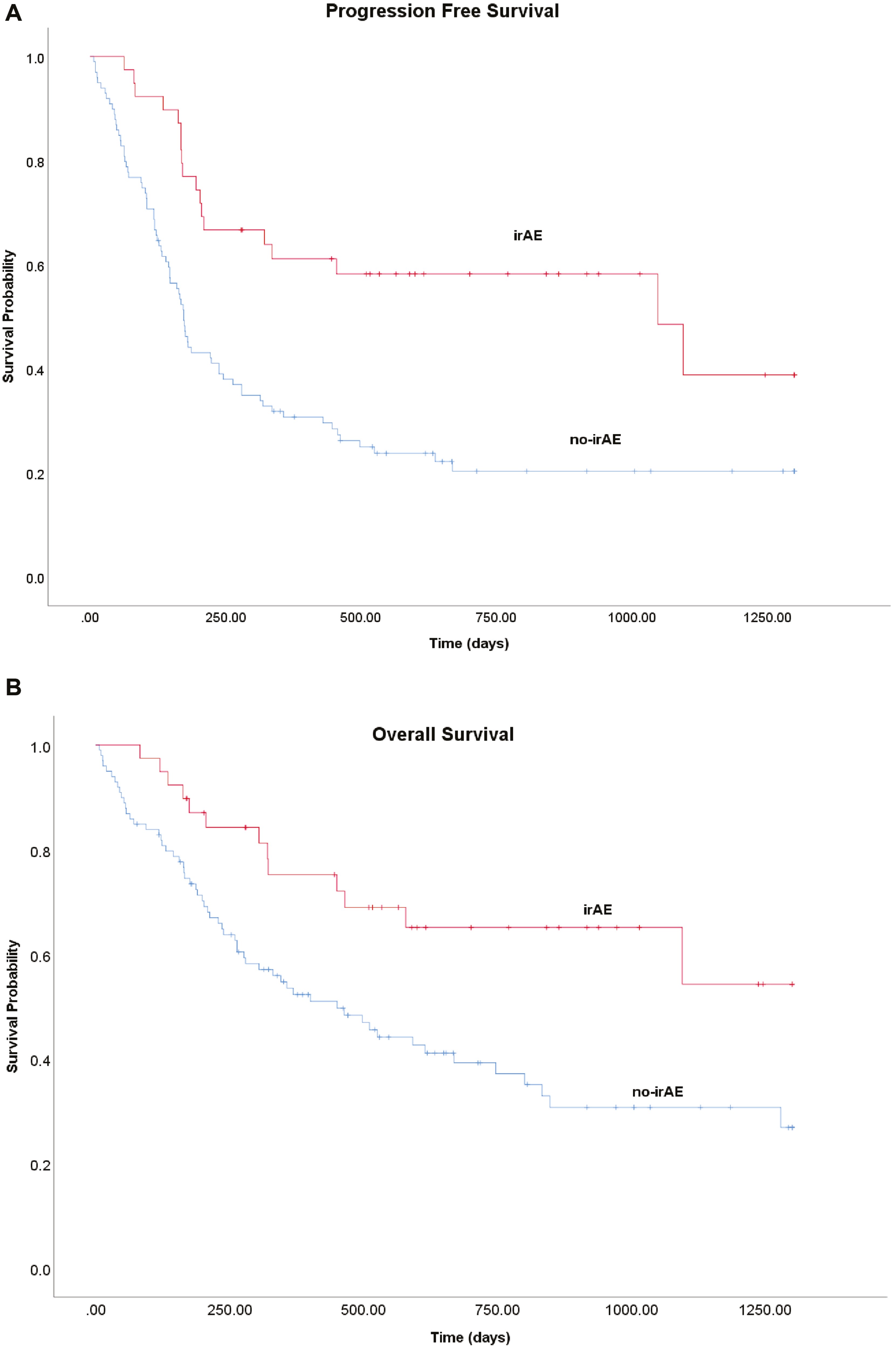 The development of immune-related adverse events (irAEs) has been associated with improved survival outcomes in non-small cell lung cancer (NSCLC). This study evaluated the association between the development of irAEs and treatment outcomes across racially diverse groups treated at a safety net hospital.
The development of immune-related adverse events (irAEs) has been associated with improved survival outcomes in non-small cell lung cancer (NSCLC). This study evaluated the association between the development of irAEs and treatment outcomes across racially diverse groups treated at a safety net hospital.
Management of severe immune-related adverse events and outcomes in patients with advanced non-small cell lung cancer receiving immune checkpoint inhibitors
Jarushka Naidoo and others
The Oncologist, oyae318, https://doi.org/10.1093/oncolo/oyae318
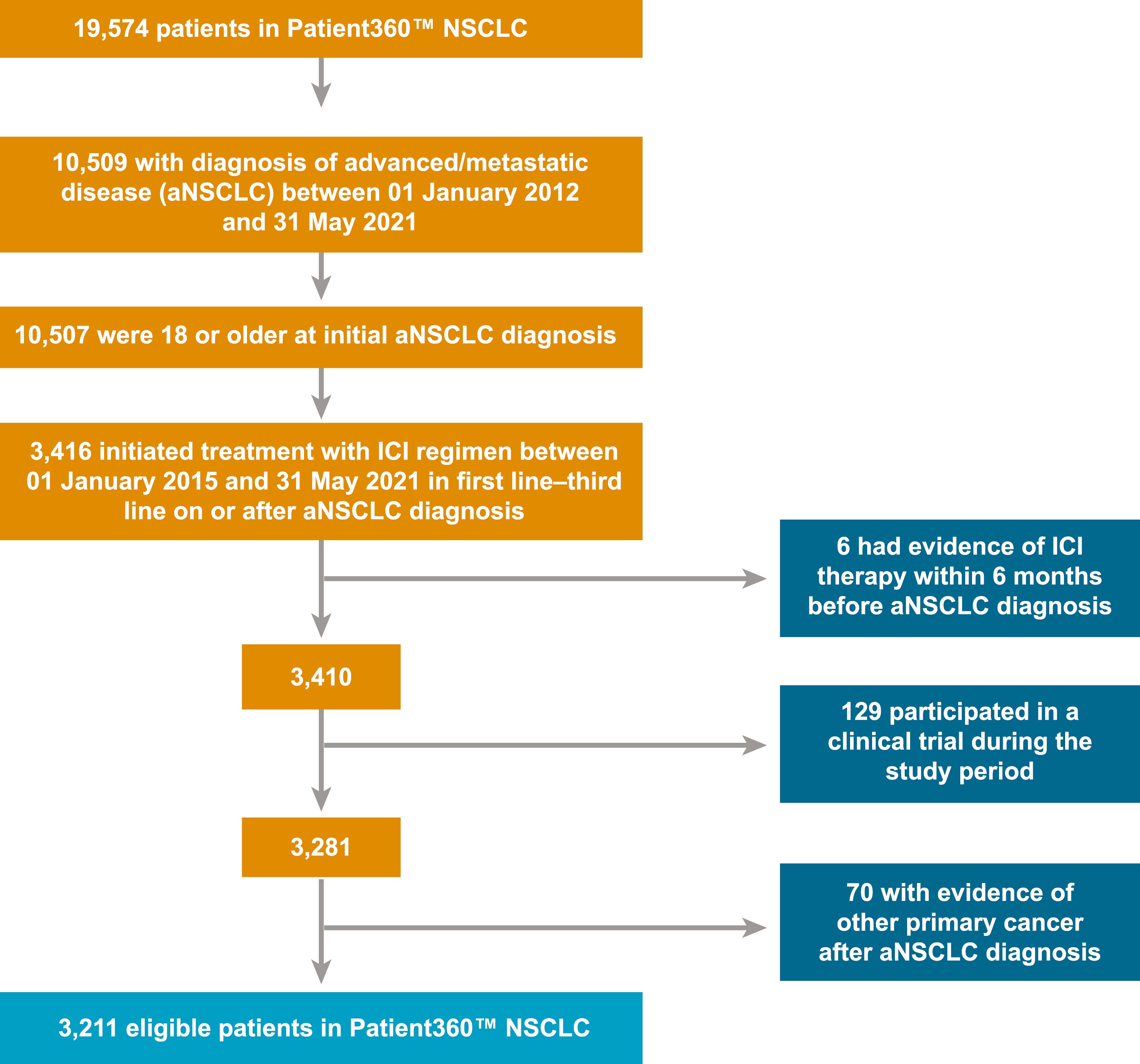 Background Immune checkpoint inhibitors (ICIs) are associated with severe immune-related adverse events (s-irAEs) that result in hospitalization, emergency department (ED) visits, treatment discontinuation, or death. This study examined the impact of s-irAEs and their earliest management strategies ...
Background Immune checkpoint inhibitors (ICIs) are associated with severe immune-related adverse events (s-irAEs) that result in hospitalization, emergency department (ED) visits, treatment discontinuation, or death. This study examined the impact of s-irAEs and their earliest management strategies ...
Advertisement
Advertisement



